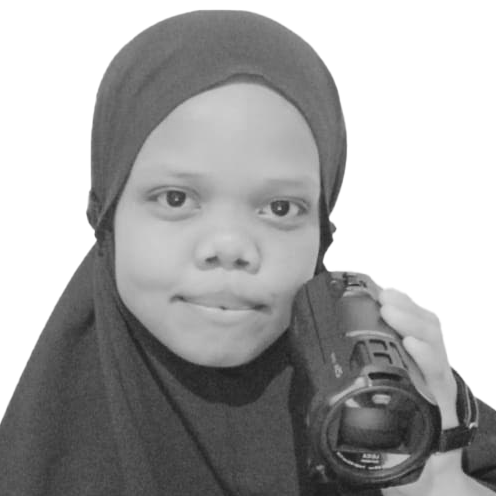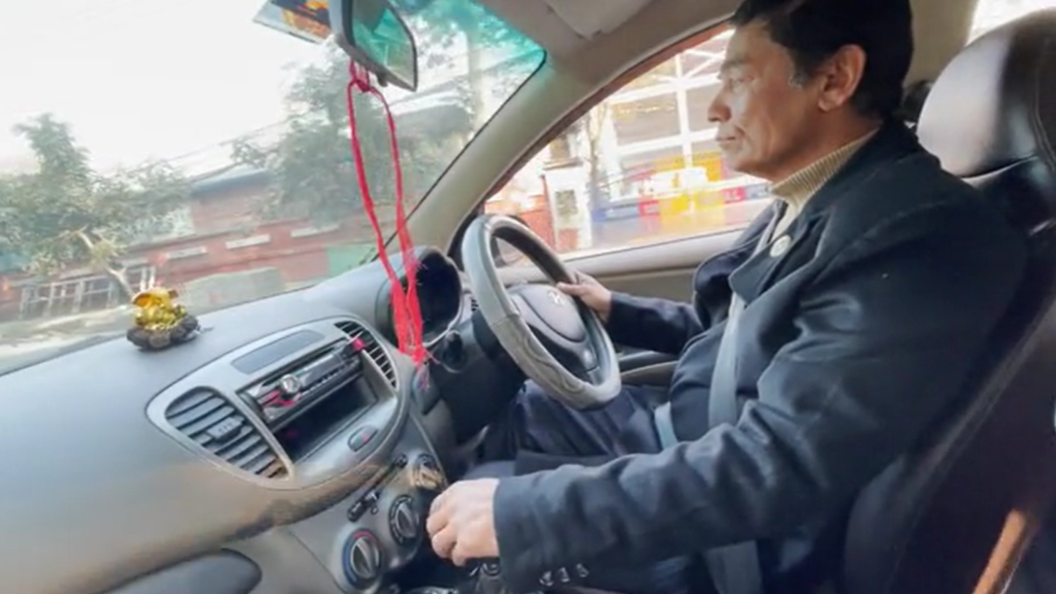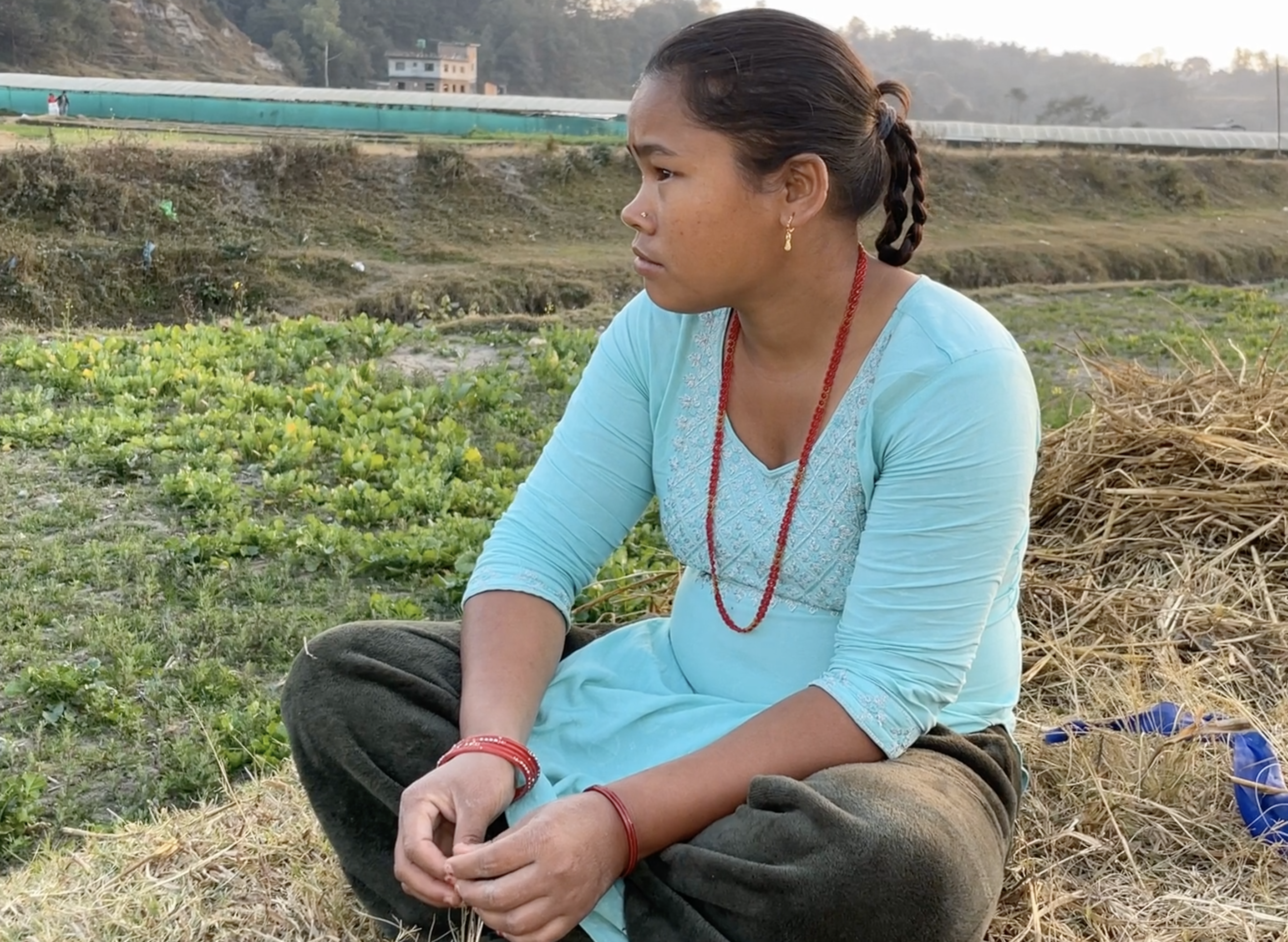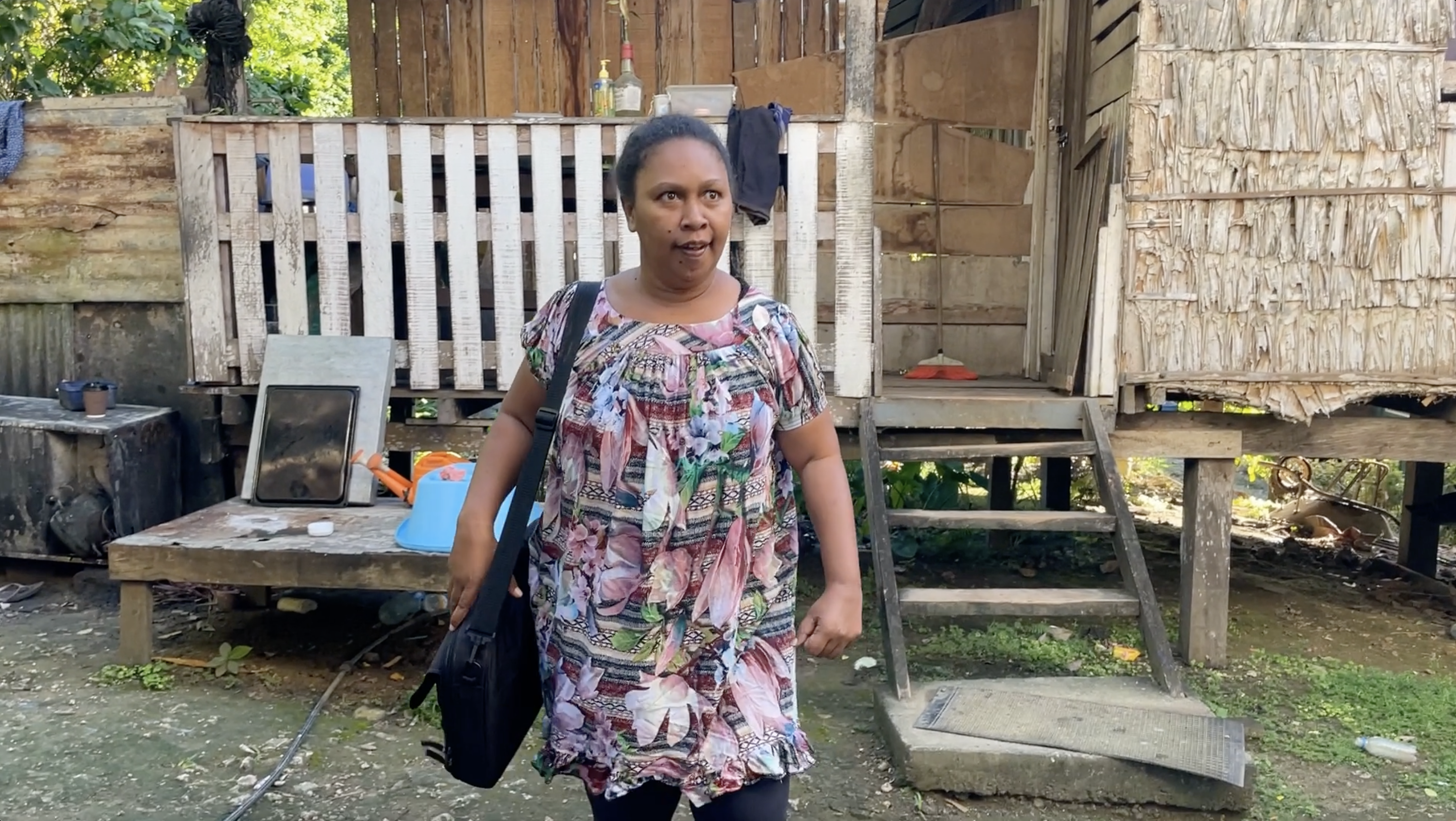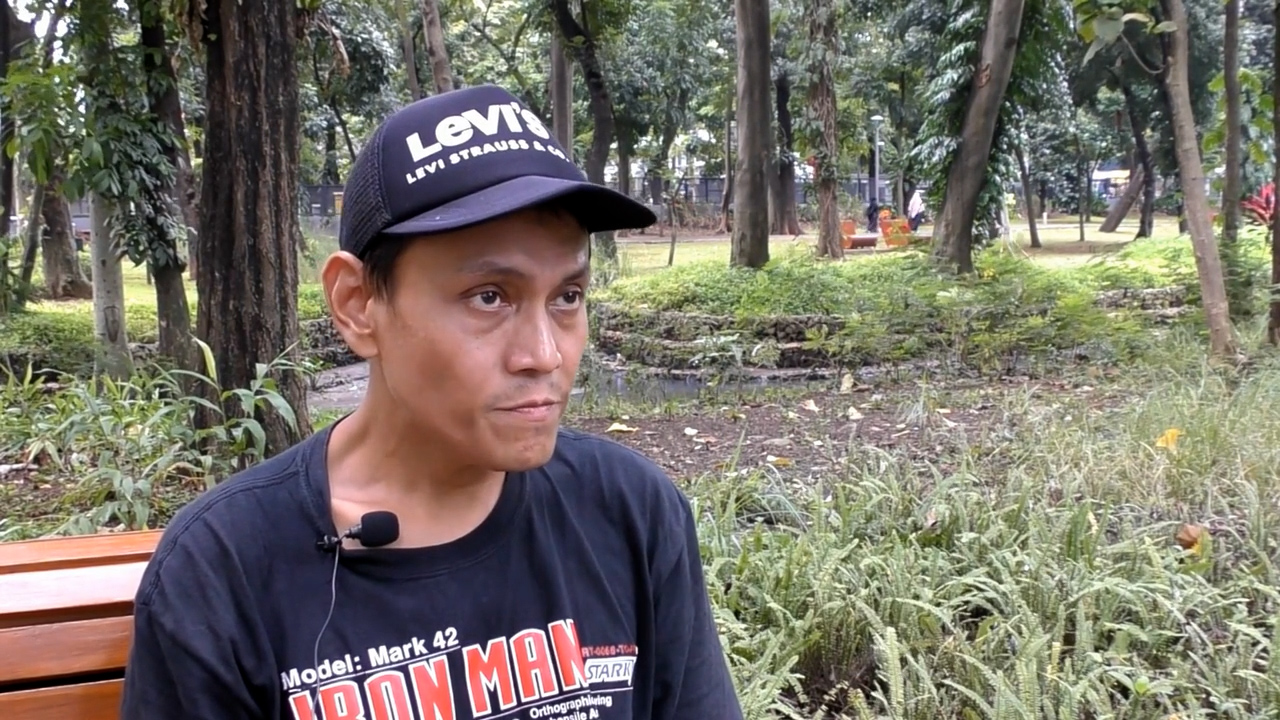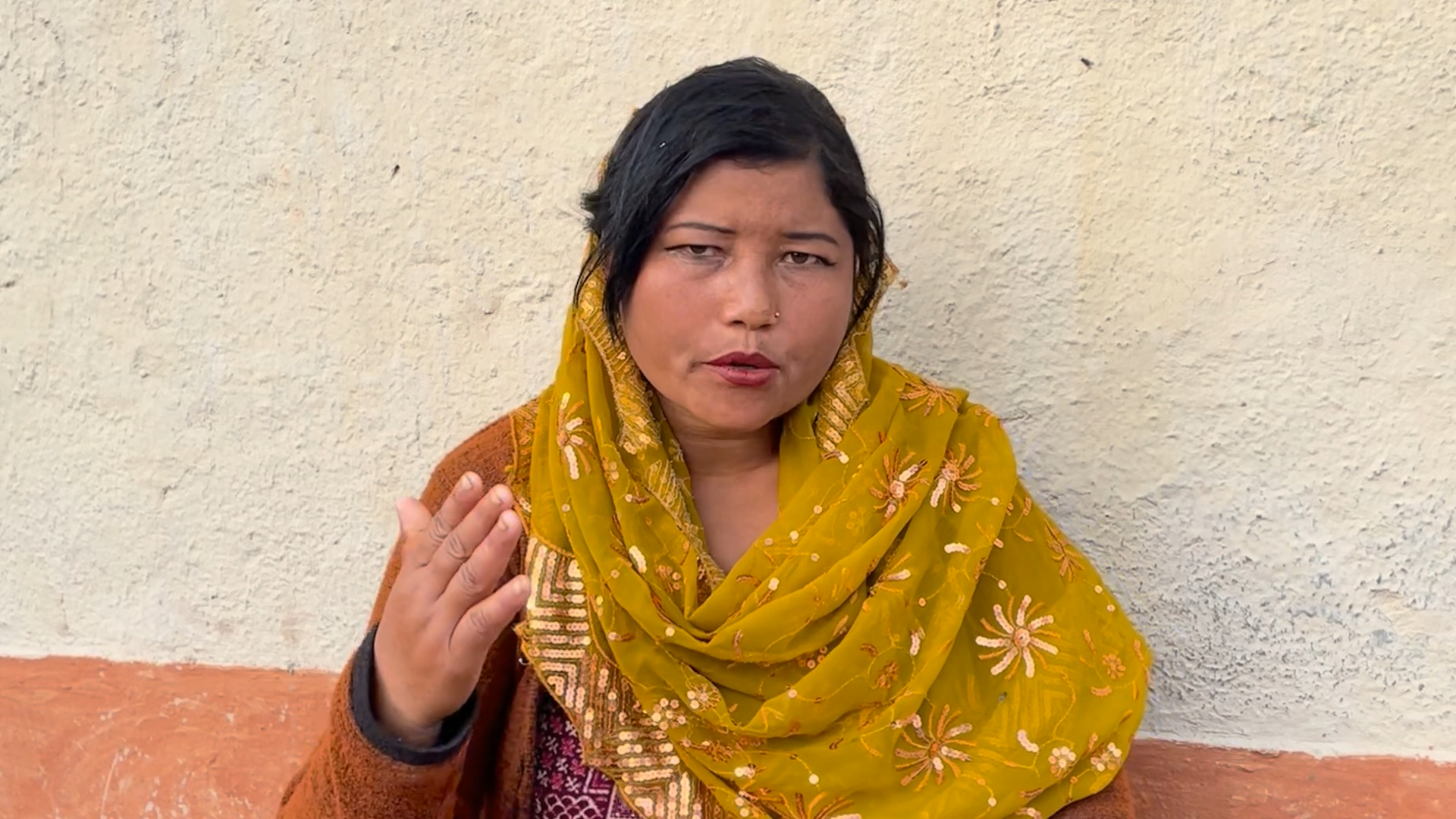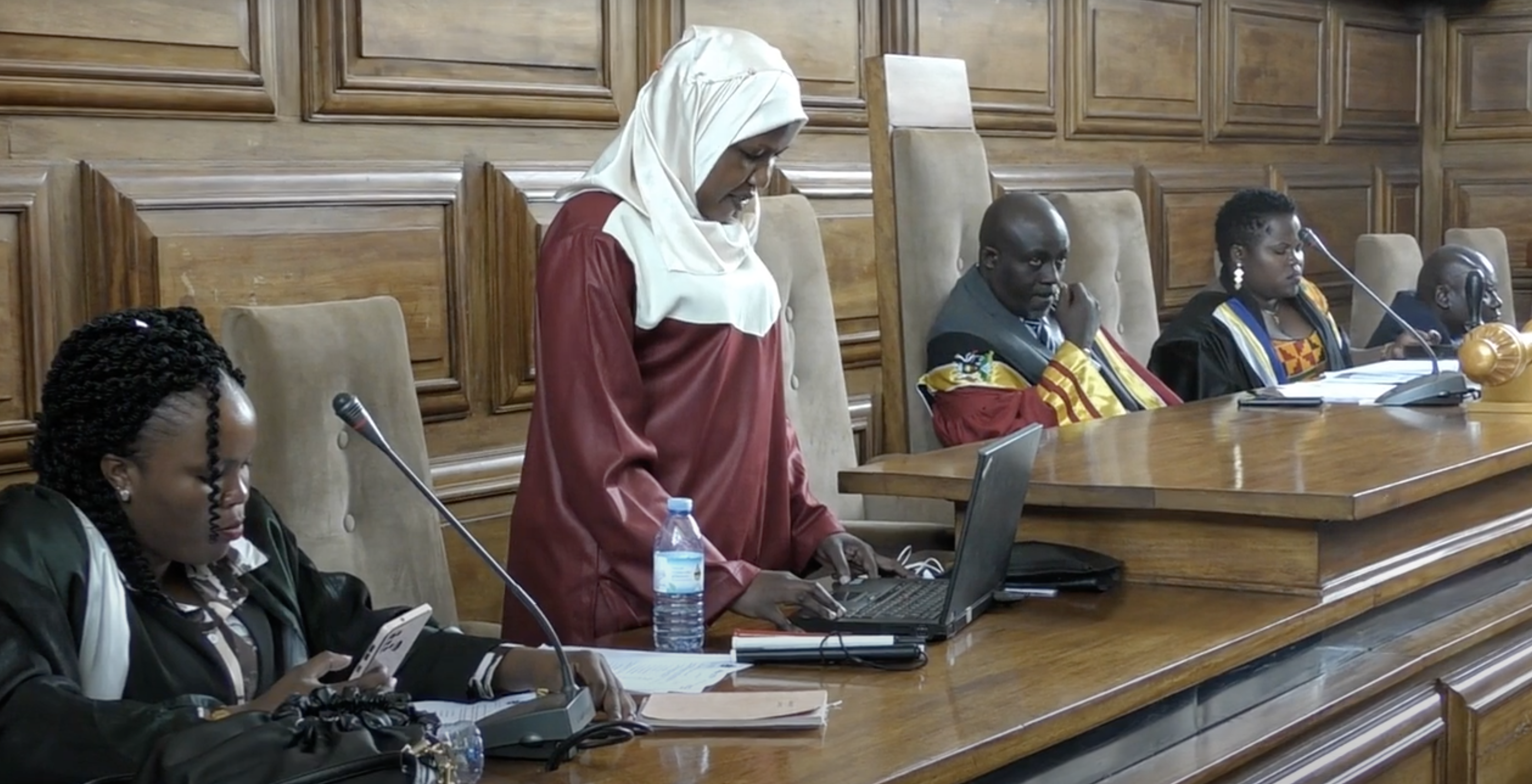Transcript for ‘Not To Be Feared’
The video starts with cars and motorcycles moving by a busy street in front of the entrance of Jongaya Village in South Sulawesi, Indonesia. A large banner in Bahasa Indonesia, featuring two Indonesian men, hangs across a red-and-white arch over the Jongaya Village entrance, and a motorcyclist enters the village. Vehicles honk, and soft piano music plays in the background throughout the video.
Cut to black text on a yellow screen that says, “Jongaya Village is one of the few leprosy settlements that still exist in Indonesia today.” Audio of vehicle noises fades out.
Cut to black text on a yellow screen that says, “In the past, people with leprosy were forcibly quarantined, but today no one is compelled to live in Jongaya.”
Cut to black text on the same yellow screen that says, “Many decide to move here after experiencing discrimination in their own communities.”
Cut to Rahimi Daeg Rani, an Indonesian man who has experienced leprosy. Rani wears a red-and-white prayer cap, sits in a room and speaks to the camera in Bahasa Indonesia: “My parents used to live in a ward, when there was a ward at Jongaya Hospital.”
Cut to a pan shot of six Indonesian men sitting outside a building with graffiti on the exterior. An Indonesian girl walks up to the men. Rani’s voiceover continues, “When I was in elementary school, I had white stripes on my thighs and arms.” People talk off-camera.
Cut to Rani speaking in the room, “At that time my parents said, ‘You have to go for treatment because you have white stripes.’ Well, from there, I was immediately taken to the health center by my parents.” People talk and laugh off-camera.
Cut to an orange cat sitting in a narrow alleyway between houses with rusted corrugated metal roofs. The cat lifts its right leg and scratches itself.
Cut to Rani speaking, “I entered here in Jongaya. I am happy because everyone is nice and friendly. We are the same people with disabilities.”
Cut to an Indonesian woman, wearing a green hijab, walking down an alleyway lined with laundry hung up to dry. Children talk off-camera, and an Indonesian child, at a window in a house to the left, waves to the woman. Rani’s voiceover continues, “There’s no interference.”
Cut to Rani speaking, “But if we go out on the street [outside Jongaya], many cars [public transportation] don’t want to take us people with visible disabilities.” People talk off-camera.
Cut to a multi-colored screenshot of an Indonesian news article with a headline in black text that says, “Stigma and Discrimination are Still Challenges for Leprosy Elimination in Indonesia,” in Bahasa Indonesia. Bimo Aria Fundrika wrote the news article for “Suara.com,” published on February 3, 2022.
Cut to Rani speaking, “Mine aren’t visible, but the visible ones, they are not allowed.” People talk off-camera.
Cut to a tilt shot of a telephone poll with many wires from nearby houses. A house with brick walls is on the left, and a child talks off-camera.
Cut to Rani speaking, “I prefer to be here because people from outside are dared enough already to enter here.”
Cut to a motorcyclist moving by an alleyway. A parked motorcycle leans on a rusted corrugated roofing sheet on the right, and a house with brick walls is on the left. Someone speaks off-camera.
Cut to Rani speaking, “It’s not the same as in the past. In the past people outside did not want to come here because in the past, people were very discriminatory.”
Cut to the red-and-white arch with a large banner in Bahasa Indonesia, featuring two Indonesian men, hanging over the entrance to Jongaya Village.
Cut to Rani speaking, “We can say that Jongaya has a history too. That’s why the very outside gate, all the people here forbid its demolition because it shows the year Jongaya was founded.” People talk and laugh off-camera.
Cut to Indonesian children playing outside a two-story house with a rusted corrugated metal roof overlooking a canal that reflects the home. An Indonesian woman with shoulder-length black hair watches over the children.
Cut to Al Qadri, an Indonesian man and leprosy activist who has experienced leprosy. He has short black hair and eyeglasses, sits on a gray couch in a room and speaks to the camera in Bahasa Indonesia with hand gestures, “I was in this leprosy complex because of the stigma and discrimination against people who have leprosy. It was about 20 years ago. The stigma was still very vicious, very strong. So that if there is a family member experiencing leprosy, that person is banished from the family.”
Cut to a close-up shot of a rock hanging from a string tied to a telephone wire on a clear day outside.
Cut to Qadri speaking in the room with hand gestures, “A house is made for that person or that person is separated from the family. Hence, I took the initiative to leave my family since people believed that leprosy was a disgrace. If you had a family member with leprosy, no one would propose to the women in the family and the proposal from the men in the family would not be accepted. That made me decide to be in this complex. I left my family.”
Cut to a pan shot of a cement-floored, one-room apartment with household items and furniture. An Indonesian girl with short black hair sits on a small bed in the left-side corner.
Cut to Qadri speaking, “After I decided to leave my family, I was looking for a village that suited me.”
Cut to a slow-motion shot of an Indonesian man walking down an alleyway with bright sunlight obscuring his face. A clothesline is on the right, a white sheet covers a parked motorcycle on the left, and a parked vehicle is on the left.
Cut to Qadri speaking with hand gestures, “I went to several villages. I am from Lerang, Bone District. I went to some places in Pare-Pare City and some other villages. Those places, however, did not offer job opportunities that I felt were suitable, as there was only farming and making red bricks there.”
Cut to an Indonesian man, wearing a brown baseball cap, riding a motorcycle attached to a food cart around a corner. A canal and houses with rusted corrugated metal roofs are in the background. Qadri’s voiceover continues, “With hands like mine, working to make red bricks, they would end up ruining the bricks.”
Cut to Qadri speaking with hand gestures, “Now I’m finally at Jongaya here, I got a job as a parking attendant. That made me interested to stay here in Jongaya.”
Cut to vehicles and motorcyclists moving by a low bridge over a littered canal. A parked pick-up truck and minivan face each other on the street. An Indonesian woman wearing a blue hijab walks by the canal.
Cut to Qadri speaking with hand gestures, “When I was here at the beginning, there were those that required much focus, there were many of them. There were 500 experiencing leprosy and suffering from organ damage or disability like me, there were many like that.”
Cut to a pan shot of a cemetery with cement headstones. Few parked motorcycles are by the cemetery, surrounded by trees. Qadri’s voiceover says, “But as time goes, the elderly passed away, the ones with disability did, too.”
Cut to a close-up, tilt shot of inscriptions on two gray headstones that say, “CANHOWAY RABU-22-11-2000,” and “JAP YON LIEN 27-10-72” respectively. Qadri’s voiceover continues, “So, what we see now is the percentage with organ damage or disability is already quite small.”
Cut to Qadri speaking with hand gestures, “If I’m not mistaken, there are around 200 who experience organ damage like I do. But the number who have experienced leprosy is still high there are around 450 people. But, compared to the population here, it’s a small number. There are already 1300 people here.”
Cut to a blue-and-yellow food cart driving down a dirt street and an Indonesian man with short black hair walking behind the food cart. Parked motorcycles are in the left foreground, and house plants lay on the dirt street in the background. A motorcyclist carrying a passenger moves by the street corner in the foreground, and a bell rings off-camera. Qadri’s voiceover continues, “People are not yet given the right information about this disease. That’s why many people who experience leprosy tend to hide themselves.”
Cut to Qadri speaking with hand gestures, “When one experiences leprosy, that person hides, not getting treatment, so that person is very likely to infect others.”
Cut to an Indonesian woman and a child sitting in an alleyway beside a house. Above them and in front of them are two filled clotheslines. Two Indonesian children walk towards the two sitting down.
Cut to Qadri speaking with hand gestures, “Common people identify leprosy like this, saying leprosy means curly fingers, shortened fingers, a body full of wounds, legs full of wounds, monster faces, etc., etc.”
Cut to a pan shot of a canal lined by small houses with rusted corrugated metal roofs. Qadri’s voiceover continues, “That is nothing but misunderstanding, as leprosy is actually a very simple disease.”
Cut to Qadri speaking with hand gestures, “It is indeed contagious, but it’s also the most difficult to spread.”
Cut to a close-up photo of leprosy scars on a person’s right shoulder.
Cut to Qadri speaking with hand gestures, “Leprosy actually starts from patches on your skin as well as some numbness. That’s the start. But as the patches are not itchy or something like that, many people ignore these patches, they don’t care, with the bacteria found behind these patches, the ones that eat away the existing nerves.”
Cut to a tilt shot of a rusty bicycle sitting on top of a small house with a rusted corrugated metal roof. A telephone pole with many wires from nearby houses cuts through the small house’s roof. Red bricks, two white plastic chairs, and other items surround the house outside.
Cut to Qadri speaking with hand gestures, “I’m here, face to face with everyone here. If my bacteria were still active, surely they would have infected my friends.”
Cut to a pan shot from a window of a small room with three wooden beds. Several garments lay on top of each bed. Qadri’s voiceover continues, “How many in the room are infected? But, who can catch it? That chance is very small. First, there has to be more exposure, that’s how the public can really understand this disease.”
Cut to Qadri speaking with hand gestures.
Cut to a motorcyclist and an Indonesian woman passenger, wearing a blue hijab, entering Jongaya Village. A second motorcyclist with a passenger and a trunk filled with water jugs enters the village. Quadri’s voiceover continues, “That’s the first thing, to realize what it is.”
Cut to Qadri speaking with hand gestures, “To reduce problems with this disease, that’s the most important thing. Then involve those who have experienced leprosy. If they don’t want to, we demand them to be involved and testify, to create public awareness that there’s nothing to fear from this disease, that this can be fully cured.”
Fade to black text with a yellow border on a black screen that says, “Copyright – @2022 HWDI. All rights reserved.”
Fade to black text with a yellow border on a black screen that says, “Made with support from the Disability Justice Project and Disability Rights Fund.” The Disability Justice Project logo is a large yellow “D” with a black play button in the middle to signify video storytelling, and white text says “Disability Justice Project” on the bottom left. The Disability Rights Fund logo – a white box with black text that says, “Disability Rights Fund” – is on the bottom right of the screen.
